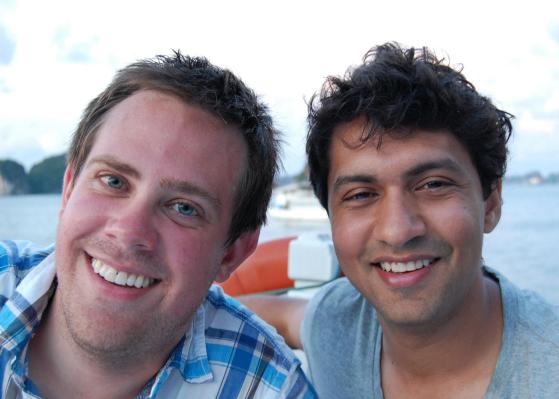Back in late 2009, Zynga quietly acquired a startup called MyMiniLife, a maker of virtual worlds that allowed players to outfit their characters and homes with virtual lamps, furniture and so on.
You couldn’t see it at the time, but the MyMiniLife acquisition was a company-making deal. It spawned FarmVille, the monster hit that put social gaming and Zynga on the map. At the same time, MyMiniLife was starting to run out of money. Ultimately, it turned out to be a win-win.
“While Zynga had some success with Mafia Wars and Poker, they weren’t necessarily in a dominant position,” said Amitt Mahajan, who was one of FarmVille’s co-creators. “They were not yet known for building these isometric worlds. Playfish was catching up, but the reusable game engine behind FarmVille gave them a leg up.”
Now Mahajan and another MyMiniLife co-founder, Joel Poloney, are back with a new company called Red Hot Labs.
Looking to have the same impact on mobile gaming, they’ve raised seed funding from an all-star cast of investors including Andreessen Horowitz, Greylock Partners, SV Angel, General Catalyst, Keith Rabois, Chris Dixon, Bill Tai, and Guitar Hero co-creators Charles Huang and Kai Huang.
To be clear, Red Hot Labs is not going to be solely a game developer. Mahajan and Poloney are looking for pain points that are common to all mobile game developers that they can build technology and services around.
“As I look at the mobile landscape, there’s this huge gap in developer tools,” he said. “There are all these holes that need to be filled. We’re not going to be just about building games but also figuring out where those holes are.”
They’ve duplicated Zynga’s original lean approach toward game development, with a series of several titles in the works all from a team of six people. They’ve got experience in this, as they built the original version of FarmVille in about five weeks.
“Our company is founded on Zynga-style product management,” Mahajan said. “We’ve scaled games to hundreds of millions of people and engineered growth and virality in both good times and bad on the Facebook platform.”
The first game, a social bingo-style game, should come out shortly.
While the rise of Android and iOS have meant big changes for the gaming industry, some things still seem the same. One of the reliably top 5 grossing games over the last six months has been Hay Day from Finland’s Supercell. (Yes, it is a farm game, albeit well-made and optimized for tablets and the touchscreen.)
Yet there are also things that are different. Distribution and virality work differently on smartphones than they do on the Facebook platform. For a long time, that meant spending your way up the top free charts. But over the time, bigger developers have gotten quite sophisticated about how they acquire traffic, balancing 30 or so different sources.
Mahajan thinks there are underutilized ways of growing mobile apps, however. He pointed to the contactbook, which has helped apps like NHN’s messaging app Line get to 60 million users in its first six months. Earlier messaging apps like Kik and Beluga, which was later acquired by Facebook and turned into Messenger, also tapped into the address book.
